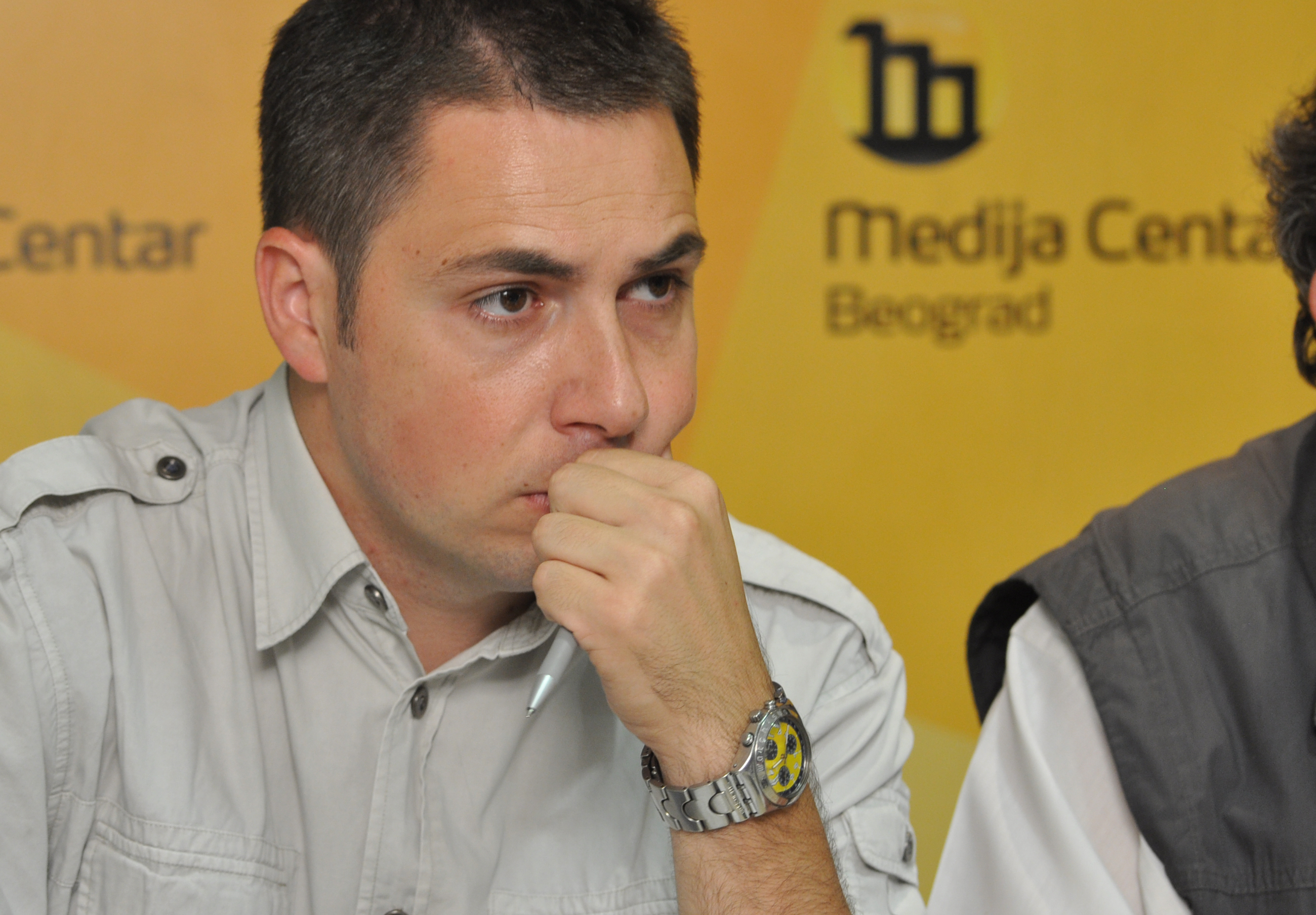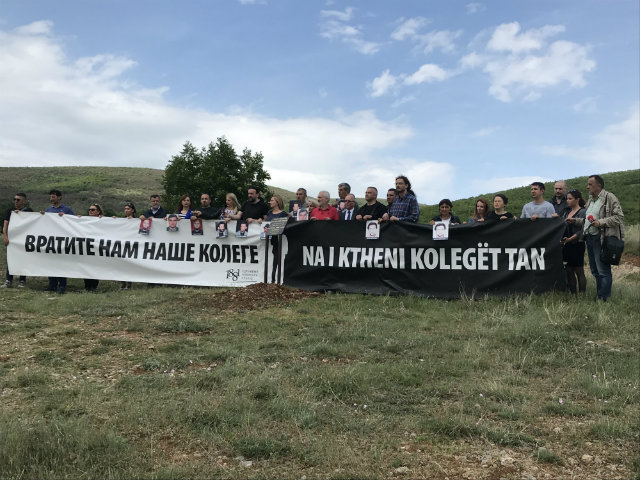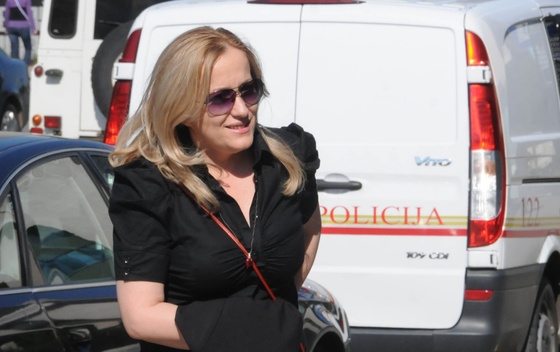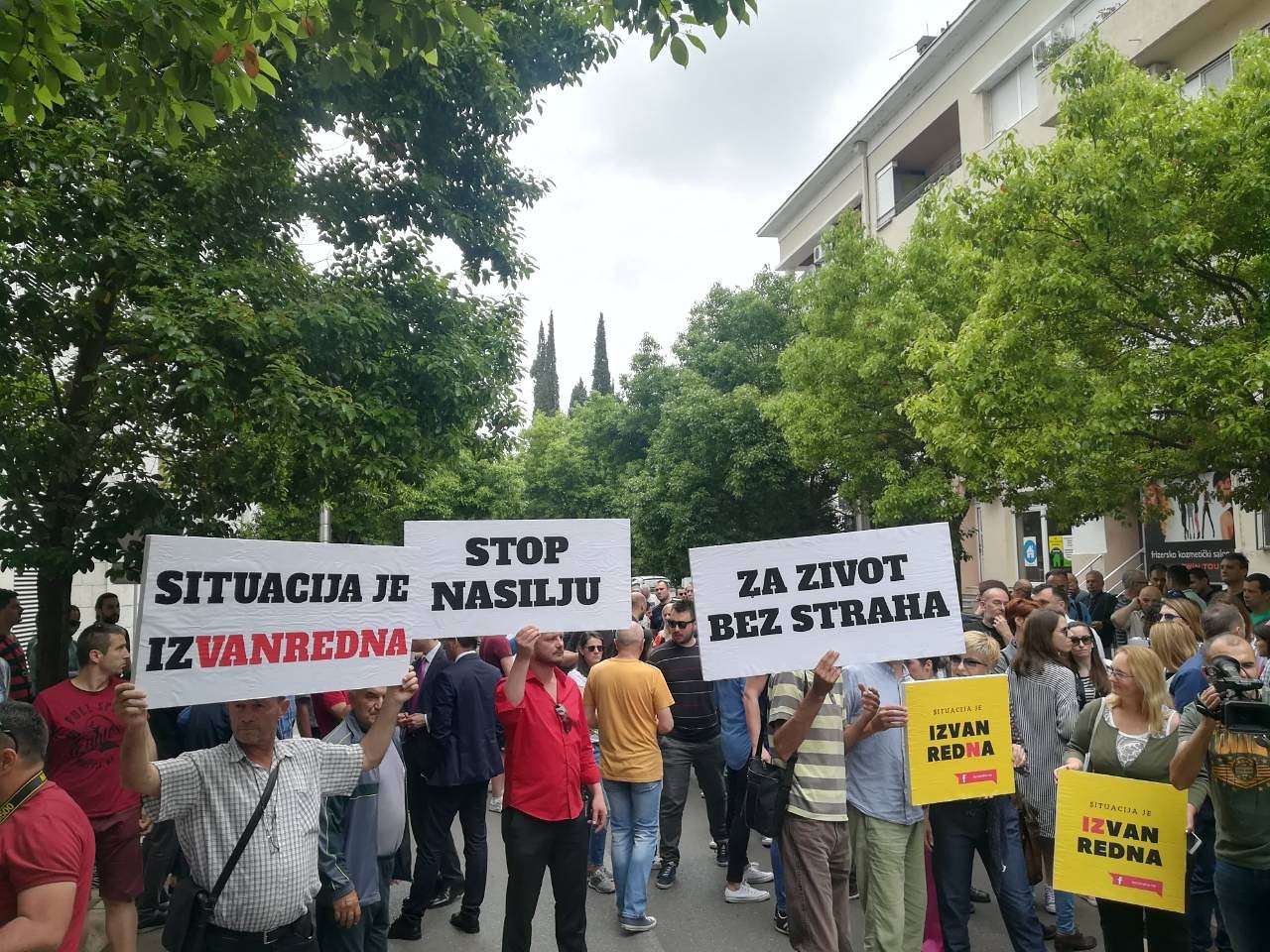BEOGRAD, 16.7.05.2018. – Podaci novinarskih udruženja u Srbiji pokazuju da je od početka ove godine zabeleženo više od 30 napada i pritisaka na novinare, a na listi medijskih sloboda Reportera bez granica, Srbija je pala na 76. mesto u 2018. godini, dok su druge zemlje regiona napredovale. Učesnici debate “Ko brani novinare – novinari između pritisaka i integriteta”, koja je u utorak uveče održana u Novom Sadu, složili su se da u takvoj atmosferi nije bezbedno baviti se tim poslom.
Na pitanje kakvi su to pritisci na koje se novinari u Srbiji žale, programski direktor Nezavisnog društva novinara Vojvodine (NDNV) Dinko Gruhonjić odgovorio je listom stvari – neregulisano medijsko tržište i nelojalna konkurencija, korišćenje poluga države poput poreskih inspekcija za finansijsko iscrpljivanje nezavisnih medija, kriminalna dodela državnog novca na konkursima, a zatim i fizički napadi, uz stalna zastrašivanja, praćenja i ucene.
“Atmosfera u društvu je takva da su neki ljudi, a sada govorim o nama svima koji sedimo za ovim stolom, izabrani kao legitimne mete. Nažalost, u Srbiji imamo iskustva sa tim šta se dešava kada vas proglase za legitimnu metu. Tako da se mi nalazimo na samoj granici ponora, neprestano. I to je ta strašna psihička presija koju verovatno neki ljudi ne mogu izdržati i pristanu na pakt sa đavolom”, kazao je Gruhonjić.
Ko u takvoj atmosferi štiti novinare? Urednik dnevnog lista Danas Dragoljub Petrović smatra da to danas u Srbiji ne može niko, pa čak ni međunarodni faktori, navodeći primer napada na novinare na inauguraciji predsednika Srbije Aleksandra Vučića.
Urednik istraživačkog portala KRIK Stevan Dojčinović rešenje problema medijske blokade u Srbiji vidi u javnom servisu. Prema njegovim rečima, istraživanja su pokazala da u Srbiji građani prosečno gledaju televiziju oko pet sati dnevno, te da je baš taj medij najdominantniji, pa bi Radio-televizija Srbija mogla da odigra jaku ulogu u formiranju javnosti.
“Ja mislim da ono što može skroz da promeni situaciju je oslobađanje RTS-a. Za razliku od Pinka recimo, to je javni servis, finansira se iz budžeta i novcem građana. Mislim da praktično oslobađanjem javnih servisa stvari mogu da se promene. Ja mislim da to mora da se uradi na ‘politički način’, jer neće se tamo ništa samo promeniti”, kaže Dojčinović.
Nekadašnji programski direktor u pokrajinskom javnom servisu Radio-televiziji Vojvodine Slobodan Arežina, složio se da promene mogu poći iz javnog sektora, ali tek uz podršku javnosti. Podsetio je da je nakon političkih smena posle promene vlasti u Vojvodini 2016. godine, oko 5.000 ljudi izašlo na ulice da brani tu medijsku kuću.
“Malo je nedostajalo da dođe do popuštanja. Da je održan još jedan miting te snage koja je bila na prvom okupljanju, mislim da bi vlast rekla – sedite da pričamo. Gotovo sam siguran. Postoji jedna zdrava snaga javnosti u ovoj državi, i nemojte da je se odričemo”, naglasio je Arežina, koji je nezakonito i po političkim željama smenjen sa mesta programskog direktora 2016. godine, a nakon prve tužbe, u decembru 2017. Apelacioni sud u Novom Sadu naložio je Radio-televiziji Vojvodine (RTV) da ga vrati na istu poziciju.
On je protiv tog javnog servisa podneo još jednu tužbu i kako je dodao na tribini, boriće se do kraja.
“Ja hoću da pokažem da se to ne može tako. Da se to ne sme tako. Da postoje zakoni, ne zato da bi nas Han tapšao po leđima i glavi. Daj da se borimo! Nekada je borba važnija od rezultata.”
Problemi medijske scene u Srbiji ne jenjavaju, profesionalna udruženja novinara napuštaju komisije u Ministarstvu informisanja, a ranije i Radnu grupu za izradu medijske strategije Srbije. Kritike stižu i na Mehanizam nastao kroz Sporazum o saradnji, koji su krajem 2016. potpisali Republičko javno tužilaštvo, MUP i novinarska i medijska udruženja, jer nije doneo rešenja slučajeva napada.



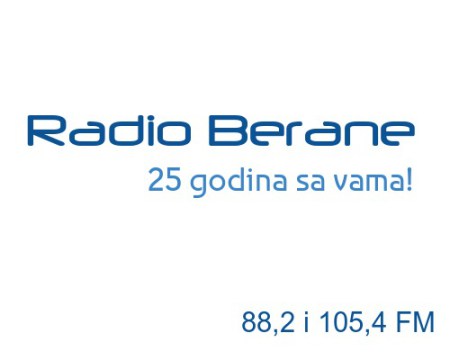
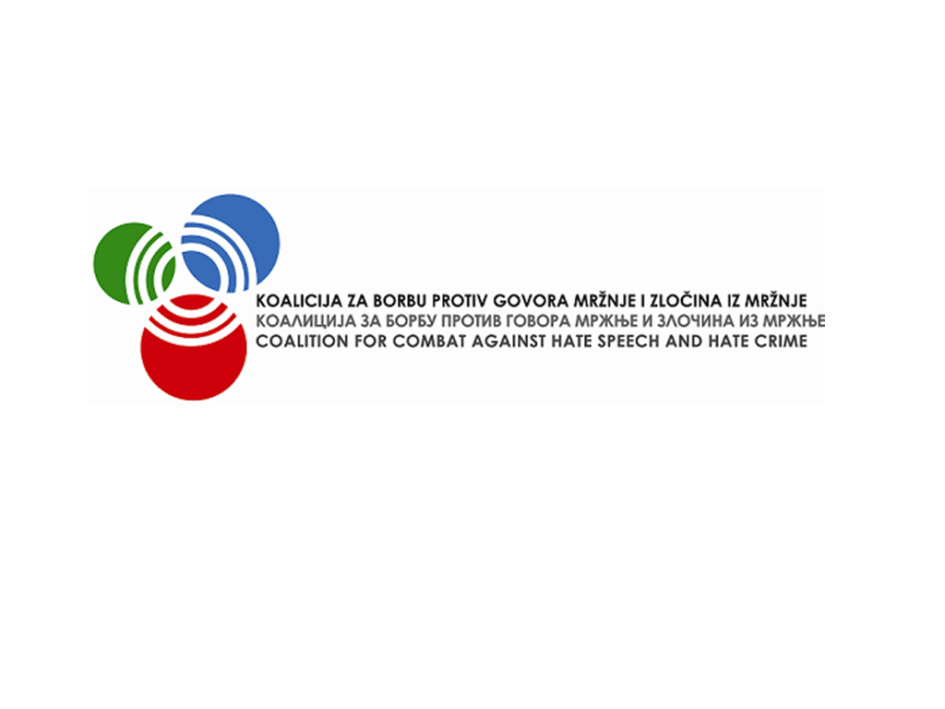
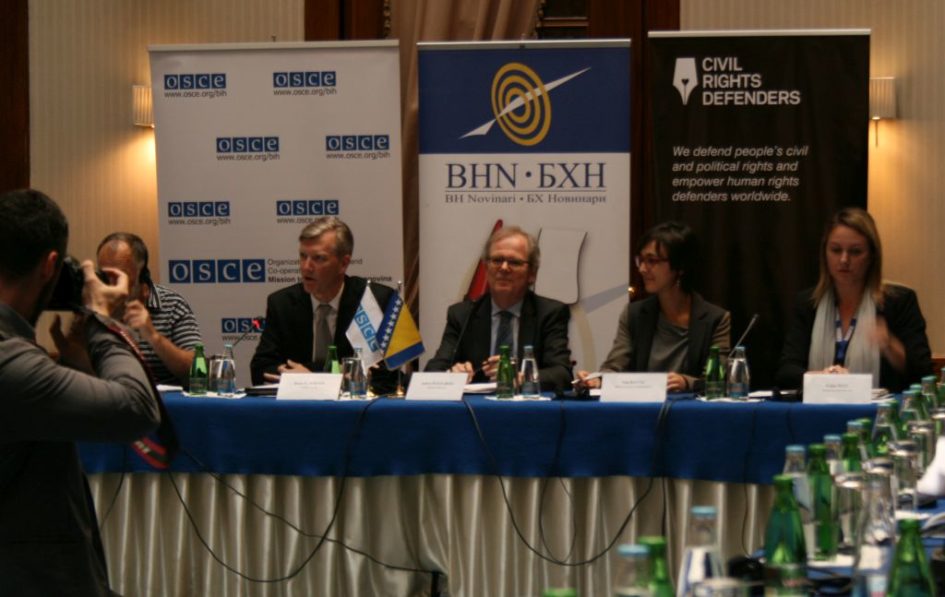
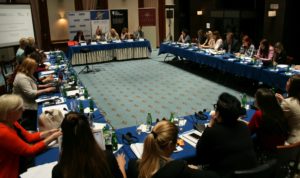 Problem female journalists face with in Bosnia and Herzegovina do not question only freedom of expression and media but also gender equality, wherefore a need for networking female journalists and increasing solidarity as category exists.
Problem female journalists face with in Bosnia and Herzegovina do not question only freedom of expression and media but also gender equality, wherefore a need for networking female journalists and increasing solidarity as category exists.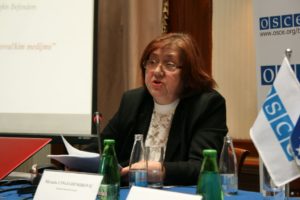 Besima Borić, gender equality activists, pointed out that BiH has an enviable legal and institutional framework for gender equality, including constitutional guarantees.
Besima Borić, gender equality activists, pointed out that BiH has an enviable legal and institutional framework for gender equality, including constitutional guarantees.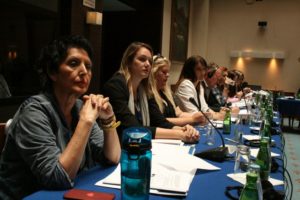 „The share of women in positions of director in the media in BiH is 25.3 percent, and men 74.7. The worst gender structure is in the leadership positions in the television sector, where women occupy only 15.8 percent of the polling stations“, said Džihana and added that most women in the positions of the chief and responsible editor work in the radio sector (44.7%), and the least in online media, where women make up 21.7 percent of those nominated in these positions.
„The share of women in positions of director in the media in BiH is 25.3 percent, and men 74.7. The worst gender structure is in the leadership positions in the television sector, where women occupy only 15.8 percent of the polling stations“, said Džihana and added that most women in the positions of the chief and responsible editor work in the radio sector (44.7%), and the least in online media, where women make up 21.7 percent of those nominated in these positions.